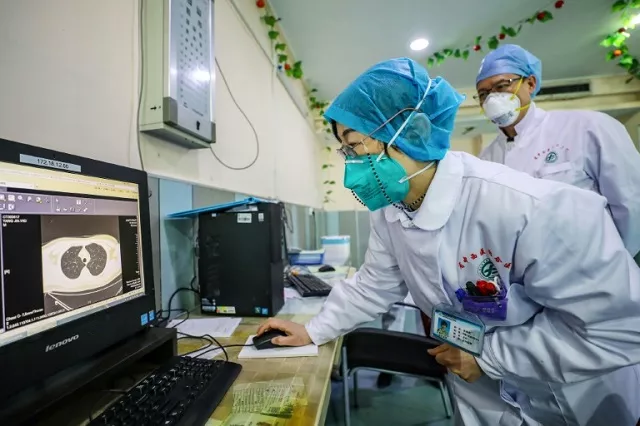Chinese researchers improve cell surface for universal blood transfusion
Human blood type is usually determined by antigens on the surface of red blood cells
HANGZHOU: Chinese researchers have used an engineering method to develop a type of universal blood cell, providing hope for people with rare blood types who need blood transfusions in emergencies.Human blood type is usually determined by antigens on the surface of red blood cells. Rhesus D (RhD) is one of the most important immunogenic antigens on red blood cells. Blood whose red cells contain RhD is categorized as RhD-positive and those who don't are RhD-negative.
RhD-negative blood is rare and the supply of RhD-negative blood frequently faces critical shortages in clinical practice. The positive-to-negative transition of the RhD antigen remains a great challenge.
Researchers from Zhejiang University engineered a surface-anchored framework that can shelter RhD antigens in the red blood cells. The chemical framework is biocompatible and does not influence the red blood cells' functions.
COVID-19 exposes lack of coherence at universities
Using this method, they engineered artificial RhD-negative red blood cells and achieved safe single and multiple blood transfusions in mice with normal circulating time. They also verified them on rabbits with RhD-negative blood and observed no RhD-specific immune responses.
According to Wang Ben, one of the researchers, the strategy can potentially convert RhD-positive red blood cells into RhD-negative ones that can be transfused to RhD-negative recipients.
"It has good prospects of translational application in clinics as patients with rare blood types are expected to receive emergency blood transfusions without RhD blood type matching," Wang said.
Wang said the research has been conducted for more than five years and the most difficult part is how to maintain the original physical properties and physiological functions of red blood cells while applying their engineering method.
Wang also noted that more research is needed before the engineered RhD-negative red blood cells can be applied in humans.
Besides the research of universal red blood cells, Wang's team is planning to research how to solve matching problems of platelet transfusions.
"In the near future, there may be more ways to transform cells through chemical and biological methods, endow cells with more new functions and explore their possible applications in medicine," Wang said.
The research was published Saturday in the journal Science Advances.


COMMENTS
Comments are moderated and generally will be posted if they are on-topic and not abusive.
For more information, please see our Comments FAQ